how museveni turned uganda into a one-family state
a public abduction by the president’s son exposes how uganda’s authoritarian drift has become overt and personal.
After nearly four decades in power, President Yoweri Museveni has reshaped Uganda’s political system to entrench personal rule, undermining constitutional checks and positioning his son, Gen. Muhoozi Kainerugaba, as successor in what increasingly resembles a dynastic regime.

a public confession, no consequences
On April 27, Gen. Muhoozi Kainerugaba, Museveni’s son and the commander of Uganda’s armed forces, posted a photo of Eddie Mutwe, a longtime bodyguard to opposition leader Bobi Wine, looking dazed and injured. “He’s is in my basement,” the caption read.


Mutwe had disappeared days earlier. Human rights groups were already sounding alarms. Kainerugaba’s tweet was not a denial, but an apparent admission and one delivered with mockery. Follow-up posts taunted Wine and threatened other opposition figures.
No investigation followed. No official statement was issued. Kainerugaba, who holds no legal authority to detain civilians, faced no consequences.
impunity in plain sight
Kainerugaba’s online behavior has drawn criticism before. In 2022, he tweeted he could capture Nairobi “in two weeks.” In 2023, he floated a presidential bid. But the Mutwe tweet marked a departure: a public embrace of extrajudicial violence, not just rhetorical provocation.
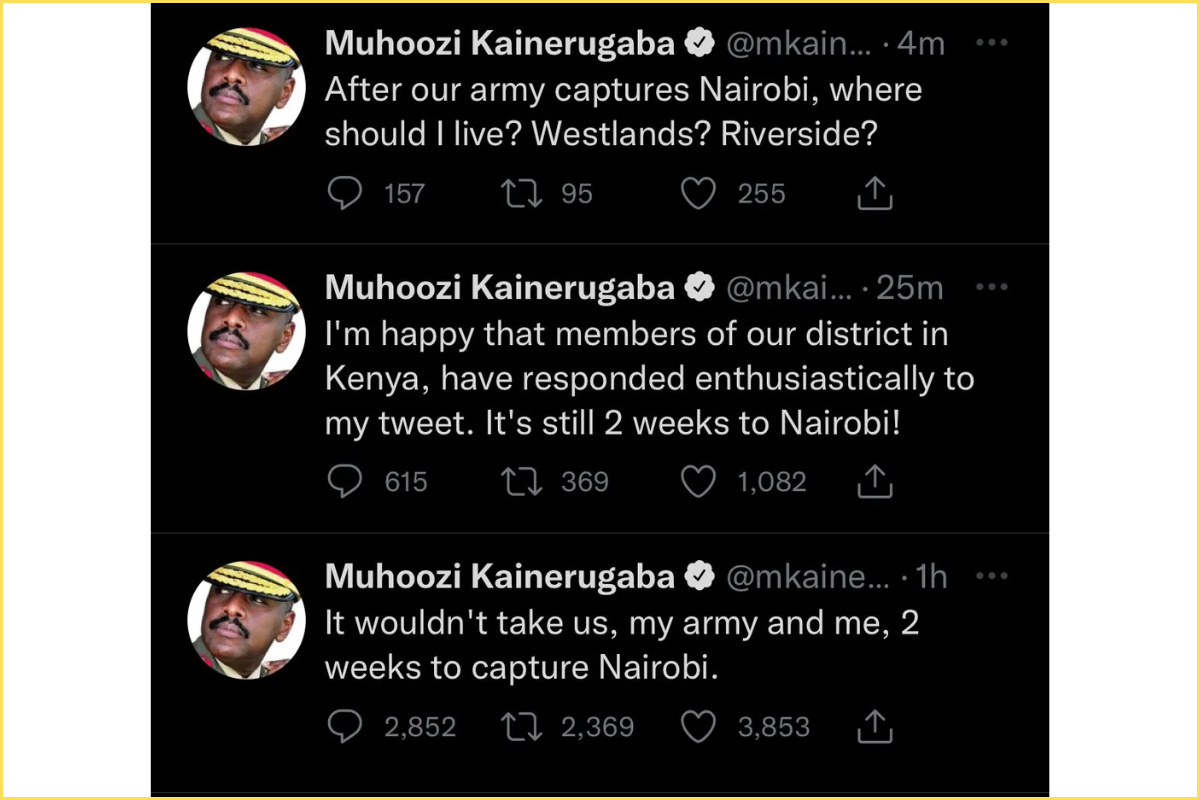
Forced disappearances have become common in Uganda. Opposition members often vanish after arrests by unidentified men, then reappear weeks later bearing signs of torture. Detainees describe being held in unofficial sites, sometimes called “safe houses”, without legal process.
Kainerugaba’s post provided rare public confirmation that these are not rogue acts. They are tools of state control.
the crown prince
Kainerugaba is more than Museveni’s son. He currently leads Uganda’s armed forces and previously commanded the Special Forces Command, an elite unit that answers directly to the presidency. He has built a personal brand online, his self-styled “Muhoozi Army”, and speaks openly of succeeding his father.
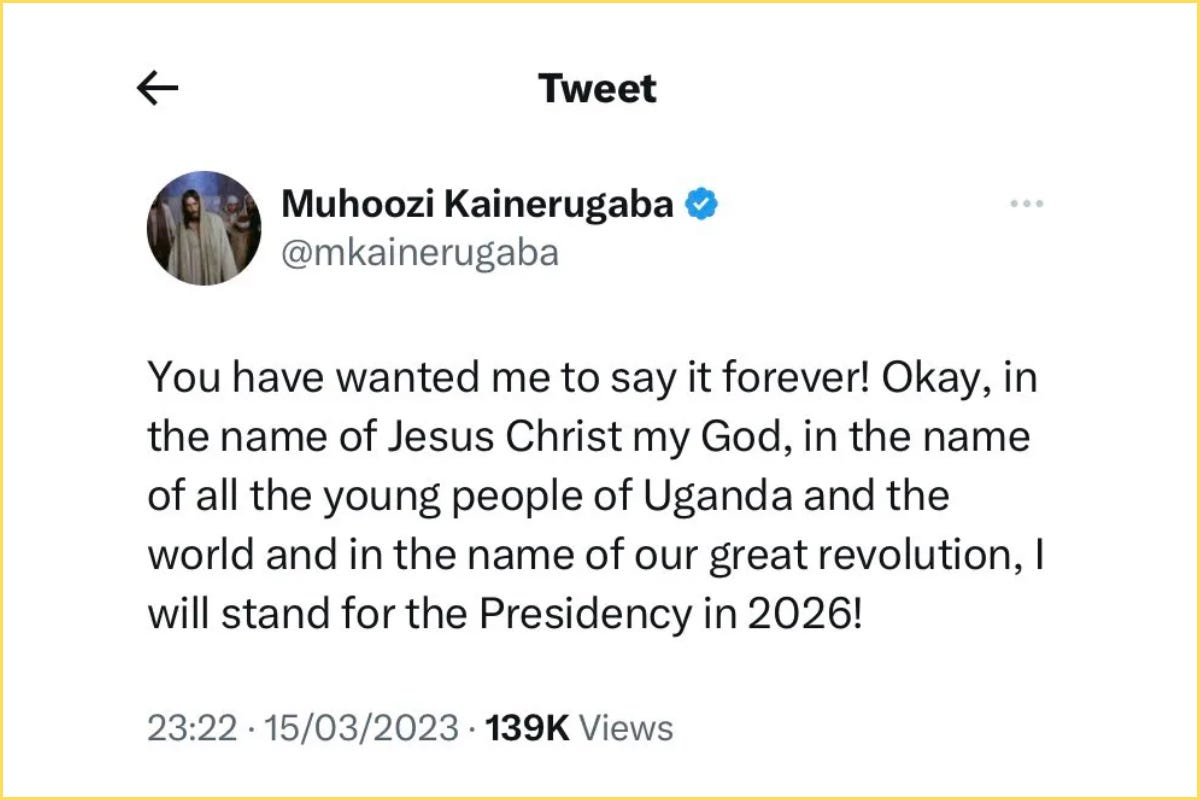
Museveni, now 80, continues to present his rule as democratic. But the shape of the regime tells a different story. Kainerugaba’s ascent marks a shift from a military-backed autocracy to one rooted in bloodline.
revolution, rewritten
Museveni came to power in 1986 promising reform. Early Western backing painted him as a new kind of African leader. But since then, term limits have been scrapped, age limits removed, and opposition suppressed.
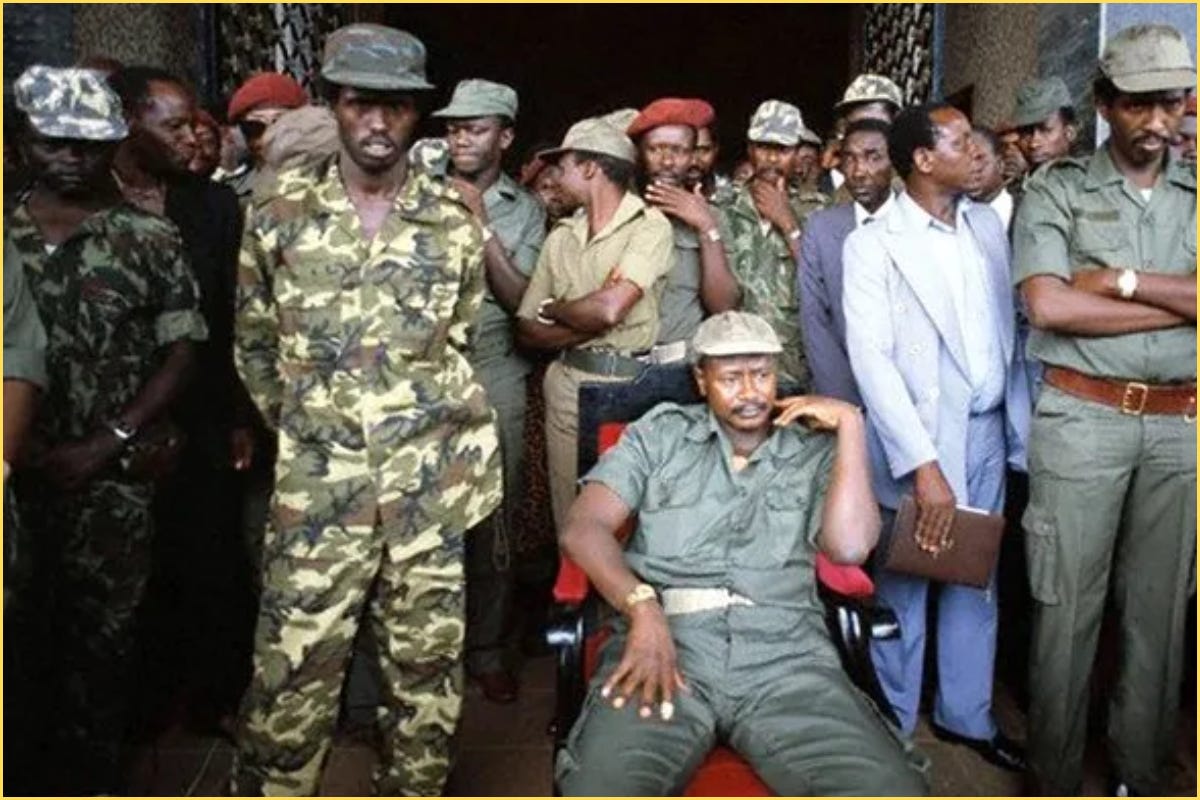
Presidential elections are held regularly but are marred by violence, arrests, and internet blackouts. Bobi Wine, Museveni’s most visible opponent, has been detained repeatedly. His allies face harassment, assault, and disappearance.
Museveni governs through legal revision and coercive force. The veneer of legitimacy remains, but the system serves one purpose: to extend his rule and now, potentially, to pass it on.
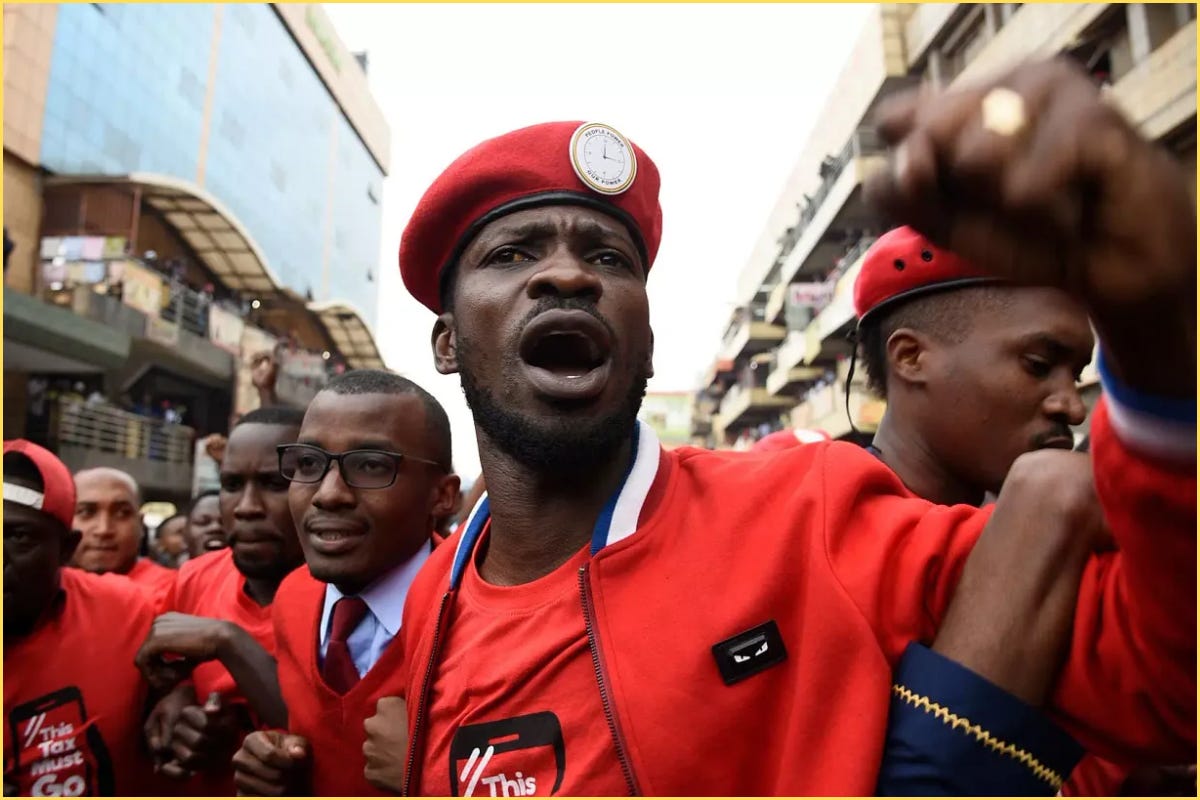
a democracy on paper
Uganda has elections, a legislature, and courts, but these institutions operate within strict limits. The military remains under executive control. Judges are often drawn from ruling party circles. The Electoral Commission lacks independence. Opposition parties are permitted, but rarely permitted to win.
Foreign donors, particularly the U.S., have helped shield the regime. Uganda’s role in regional peacekeeping and counterterrorism has earned it a reputation as a “stable partner.” In exchange, scrutiny of its domestic governance has been muted.
What results is a hybrid regime: democratic in structure, authoritarian in function.
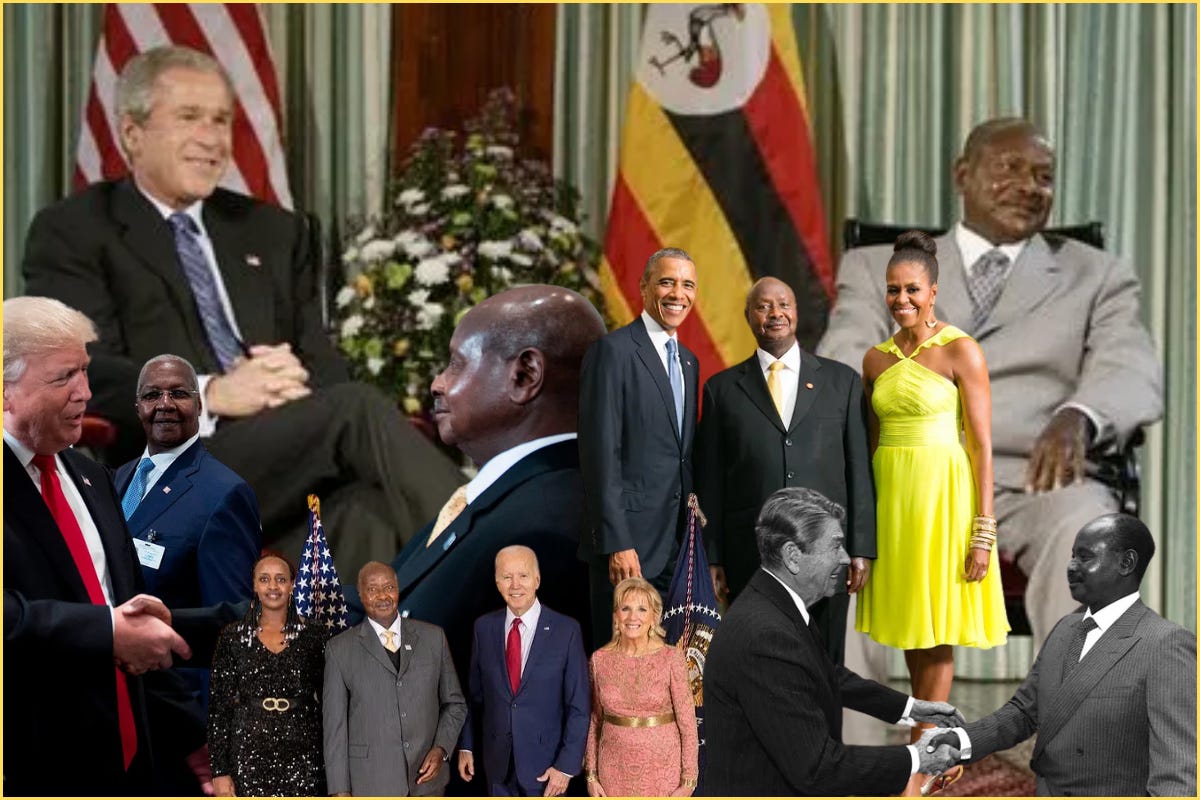
what the tweet revealed
Kainerugaba’s tweet did more than provoke, it clarified. It eliminated the regime’s usual deniability and confirmed that political violence in Uganda is not incidental but sanctioned and personal.
For years, analysts have warned that Museveni was laying the groundwork for hereditary succession. The Mutwe episode exposed that transition in action: a security apparatus now answering to family ties rather than state institutions.
your take?
source/footnotes
BBC, Anger as Uganda president's son says he's holding opposition bodyguard, 2025
US State Department, Uganda 2023 Human Rights Report
Al Jazeera, Uganda’s President Museveni promotes son to army chief, 2024
HRW, “I Only Need Justice” Unlawful Detention and Abuse in Unauthorized Places of Detention in Uganda, 2022
The Washington Post, Stories of torture emerge as Uganda releases Bobi Wine supporters, 2021
Freedom House, 2024 Ranking for Uganda
The Guardian, Museveni declared election winner in Uganda as rival Bobi Wine alleges fraud, 2021
The Guardian, Ugandan opposition accuses president of using military courts to quash dissent, 2025


